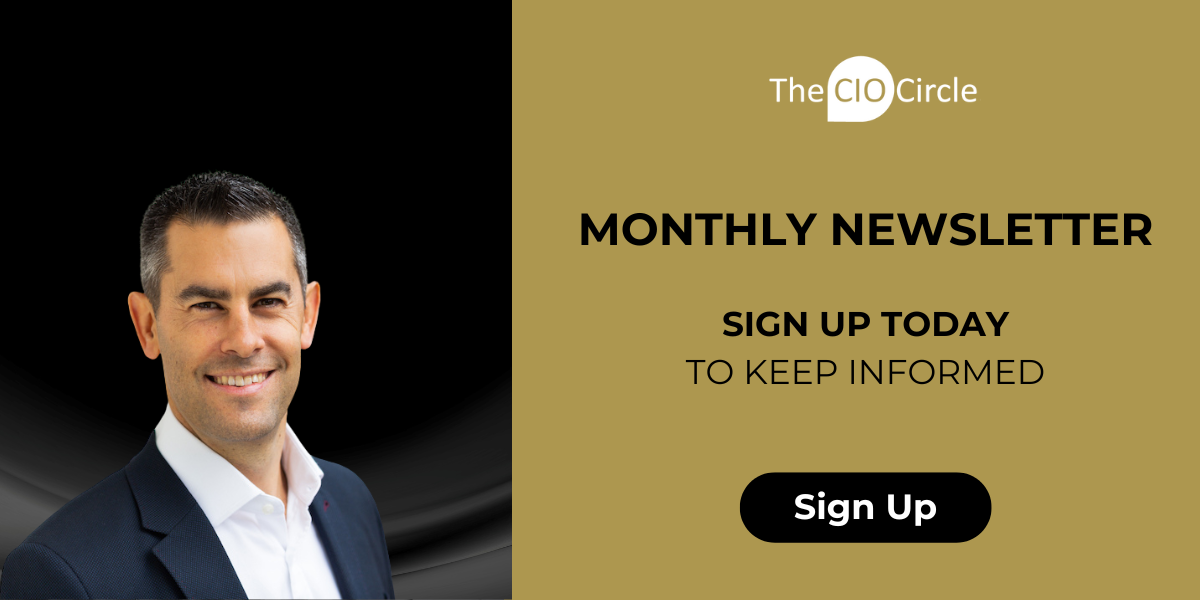Director/CIO, Information Systems at Christie Clinic
Can you please provide a little introduction about yourself
I am Scott Segerstrom, and I am the Director and CIO of the Information Systems division for Christie Clinic, a Champaign, Illinois-based independent, physician-owned, healthcare operation with 200 providers, just over 1000 employees, and 25 clinical support locations in east-central Illinois, where I am the top IT executive.
I am responsible for the entire technology portfolio and have 3 departments, totalling 29 team members, that report to me.
What path have you taken to your current position?
My career path to CIO can easily be described as non-traditional. My collegiate studies were in biology, chemistry, and ecology. While working part-time at a local hospital during graduate school, certain events made me question my career path and I pivoted into cardiac diagnostics. It was in this role I discovered my affinity for computer technology.
My first official technology position was with a private medical practice converting them from a Novell network to an NT network and getting them ready for Y2K. I installed my first electronic medical record system for this group in 2001, and after a few merger and acquisition events, ended up with the role of Director of IT Operations for a large medical group based in the Chicago, Illinois metropolitan area. I have been in my current position with Christie Clinic since 2013.
Has it always been your vision to reach the position you’re at? Was your current role part of your vision to become a tech leader?
My vision has always been to be in healthcare in some way. It has been through personal preparation and serendipity, that I discovered and uncovered this path to technology leadership. Driving technology strategy and vision in a healthcare operation has been personally gratifying and rewarding.
I believe that providing high-quality, cool tech to healthcare providers and their teams, has a valuable impact on the overall healthcare ecosystem that would make any technology professional proud of their contribution, though indirectly, to the care of patients and their families.
Have you had a role model or mentor that has helped you on your journey?
Working for and with physicians and various healthcare leaders, whether in IT or other operational areas, exposes you to a large variety of leadership styles. I have met many over my career and have learned something from everyone I have met along the way to make me what I am today.
I did have one IT VP that I reported in my prior role, who was instrumental in teaching me how big healthcare IT should function. I continue to chat with him to this day to bounce ideas off of him and for guidance.
How do you see the role of the technology leader evolving over the next 5 years?
Looking specifically at the healthcare vertical, technology leaders are going to be put in the position of having to figure out what is hype and what is truth with respect to artificial intelligence; how to identify and validate useful AI tools while at the same time protecting the business from rogue AI; how to economically deploy those useful AI tools and making sure that all employees have the skillsets needed to maximize the use of those tools.
Technology leadership has been asked to understand the needs of all the business segments in their companies, and the promise and hype of AI solutions will make that professional imperative.
What skills do you think leaders of the future will need in order to thrive?
Future technology leaders will need to be data governance experts. Data is the key to the AI revolution and businesses will look to technology leaders to provide the data needed to drive AI projects those technology leaders will need to know how to protect the data and business at the same time.
This will require thorough technology and business acumen, top-notch negotiation skills, both internally and externally, and an ability to see the big picture for any business strategies being contemplated, in order to supply the proper technology solutions in support of those strategies.
Is there anything in particular that you would still like to achieve in your career or what is the next step on your journey?
I want to find a path to improve the education and training of the future healthcare workforce to understand and embrace technology and the tools it provides. Too many people in today's healthcare workforce, especially clinical frontline and support teams, have limited exposure to technology, usually only what they pick up in their personal experiences.
This forces businesses to spend a tremendous amount of energy and resources to train them on any technology the business uses. Providers get marginally more exposure through their training on how to use electronic health record systems, but that is hyper-focused on the system in use during their training programs. There has to be a better way to eliminate the fear associated with using technology.
What advice would you give to aspiring technology leaders who are just starting their careers?
Never stop learning, but do not limit yourself to only learning technology. New leaders need to learn financial basics, how to budget, negotiation skills, people development and management skills.
Find a library of trusted resources or continuing education classes to become as much of a generalist as possible.
"Never stop learning, but do not limit yourself to only learning technology."
What has been your most significant achievement or proudest moment as a technology leader?
Over my career, I have managed and supported 5 different EHR systems and have converted businesses from one EHR to another 4 times. Each migration event presents its own unique challenges with ETL workflows, politics of what source data is going to get migrated and how it will appear in the new platform. I am proud that I was successful with each migration event, and patient care continued without significant interruptions.
I am also proud to have achieved my Certified Healthcare CIO and Certified Digital Healthcare Executive credentials from the College of Health Information Management Executives (CHIME).
How do you ensure that you and your team stay updated with the latest technology trends and industry best practices?
We intentionally include staff continuing education as a department strategic goal every year that gets tracked. Each team member has to complete so many hours of continuing education.
I allow them to pick the topics that interest them; however, they must be technology-related. The number of learning hours is tracked and reported on our goals dashboard by the department managers.

Other details that you'd like to add:
Health Information Technology is an honorable and rewarding career path and I encourage any IT professional to explore opportunities in this vertical.
I also want to thank The CIO Circle for considering posting my story and I am grateful and honored to be included with all the other accomplished technology professionals.
A big thank you to Scott Segerstrom from Christie Clinic for sharing his journey to date.
If you would like to gain more perspective from Tech Leaders and CIOs you can read some of our other interviews here.
May 20, 2025


